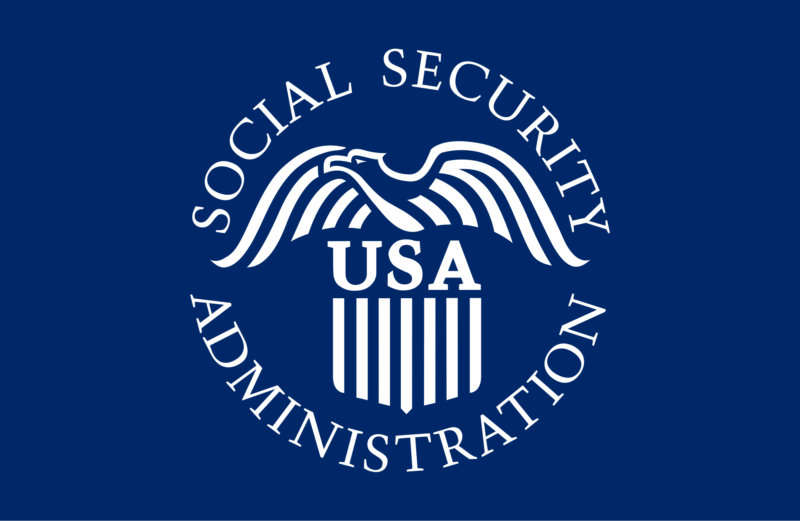PERA and Social Security Explained
Why don’t most Colorado PERA members participate in Social Security? And why might a PERA member’s Social Security be affected by participation in PERA?
These are questions we hear every day at PERA. To answer them, let’s go back to the beginning.
When Colorado PERA was established in August of 1931, Social Security did not exist. After hearing from a group of state employees who wanted a way to plan and save for retirement, the Colorado General Assembly acted to create the State Employees’ Retirement Association (SERA). At first, only state employees were covered by SERA. Voluntary coverage under the plan was offered to schools districts and local governmental entities in the 1940s and SERA was renamed the Public Employees’ Retirement Association to better reflect the broader membership in the association.
When the Social Security Act was passed by Congress in 1935, State and local governmental entities were specifically excluded from participating in Social Security. Congress questioned whether it could compel the States and their political subdivisions to include their employees in the system. It could have been considered unconstitutional under the Tenth Amendment to the U.S. Constitution as a levy of taxes on States and localities.
In 1951, Congress added Section 218 to the Social Security Act, which allowed a state to independently decide whether or not to include some or all of its public employees in Social Security. Colorado executed a Section 218 agreement but narrowly defined the employees who would participate in Social Security. That same year, all school districts other than Denver Public Schools (DPS) were required to participate in PERA. (This was because DPS had their own separate retirement system at the time.)
Still today, most public employees in Colorado do not participate in Social Security (a few Local Government Division employers participate in both PERA and Social Security). PERA serves as a substitute for Social Security; instead of paying the 6.2 percent FICA tax (made up of 5.3 percent for Old-Age and Survivors Insurance and 0.9 percent for Disability Insurance), most PERA members contribute 8 percent of pay to PERA (providing retirement, survivor, and disability benefit coverage).
Two separate federal provisions are in place today that may reduce a public employee’s or retiree’s Social Security benefit. As a result, an anticipated Social Security benefit may be reduced due to participation in PERA. A PERA benefit, however, will not be reduced by any Social Security benefit received. (Read more about PERA and Social Security and Information for Government Employees.)
Windfall Elimination Provision (WEP)
In order to qualify for a Social Security benefit, workers must earn 40 credits (typically, working in a Social Security-covered job for 10 years). PERA members with at least 40 credits in Social Security, however, may have their worker benefit reduced by the WEP as a result of not contributing to Social Security while working for a public employer. Colorado is one of 15 states where most public employees do not participate in Social Security. As noted by the Coalition to Preserve Retirement Security:
“However, non-covered employees can be found in all 50 states according to data from the Social Security Administration. It’s estimated that 75% of all public safety officers (police, fire, and correctional personnel) are exempt from Social Security. Additionally, it’s estimated that approximately 40% of America’s public school teachers are also exempt.”
Nationally, it’s estimated that 6.5 million public workers are not covered by Social Security.
According to the Social Security Administration, Social Security benefits are intended to replace only some of a worker’s pre-retirement earnings, and lower-paid workers receive a greater replacement percentage of career average earnings than higher paid workers. Prior to the WEP being enacted in 1983, non-Social Security government workers had the advantage of receiving a Social Security benefit representing a higher percentage of their actual earnings. Congress passed the WEP to remove the advantage since these workers also qualified for a pension from a job for which they didn’t pay Social Security taxes.
The law protects non-Social Security workers who receive a low government pension from having the WEP result in a smaller combined benefit by guaranteeing that the WEP will not reduce a Social Security benefit by more than one-half of the non-Social Security pension (so a PERA member would never end up with less overall as a result of the WEP). Furthermore, the maximum WEP reduction to a Social Security benefit in 2015 is $413, and the WEP does not apply to an individual with 30 or more years of substantial Social Security earnings (and it is prorated for 21-29 years of substantial earnings). The Social Security Administration offers a WEP Online Calculator to estimate a Social Security benefit with the WEP applied.
Government Pension Offset (GPO)
The GPO applies to PERA retirees who also receive a Social Security spousal or widow(er) benefit, and reduces the Social Security benefit by two-thirds of the PERA benefit. “Dependent” benefits were established in the 1930s to compensate spouses who stayed home to raise a family and were financially dependent on the working spouse. According to the Social Security Administration, now that it is common for both spouses to work, the GPO requires the “dependent” benefit to be offset by the dollar amount of their own retirement benefit, and it ensures the benefits of government employees who do not pay Social Security taxes are treated the same as workers in the private sector who pay Social Security taxes. Because the average PERA benefit is usually larger than the average Social Security spousal benefit, an “average” PERA member’s spousal benefit may be eliminated by the GPO.
PERA and Social Security
It is PERA’s understanding that the GPO and WEP still apply even when a member refunds a PERA account if employer matching dollars are included in the refund or rollover. A bill has been introduced in Congress to eliminate the WEP (read more here), and a recent report by the Social Security Advisory Board has been released questioning the math of the WEP. PERA provides contact information for members of Congress on this or any issue here.
While the Social Security spousal benefit will most likely be completely offset by the GPO and a worker benefit may be reduced by the WEP, the resulting PERA benefit will be far greater and more than make up for any offsets to an anticipated Social Security benefit – and a PERA benefit is sustainable today and into the future as a result of reforms passed under SB 1.
Windfall elimination provisionA provision of federal law that may reduce Social Security benefit payments to retirees who receive a pension based on work during which they did not contribute to Social Security. The WEP does not apply to those with 30 or more years of substantial earnings in Social Security.Government pension offsetA provision of federal law that reduces Social Security dependent benefit payments to spouses, widows, and widowers who receive a government pension like PERA.





So where does all the money I paid into social security go???? I worked many, many jobs while teaching, in college and before college. I HAD to pay into social security>no choice. ALSO, where does all my now deceased husband’s social security go??? To my knowledge it goes to the people WHO HAVE NEVER WORKED … Both my husband I PAID INTO social security because we worked long, hard hours…and I get NOTHING >not a penny from social security. I also paid/ and am still paying into PERA. There is something seriously WRONG when my social security is paid to people who have done nothing . Why do OTHER PEOPLE who have a NON-PERA pension get THEIR SOCIAL SECURITY along with their pension but NOT THOSE OF US WHO RECEIVE PERA???
Answers please!!!
Thank you for your comment, Suzanne. I would encourage you to contact your representative in Congress and share your concerns with him or her. The WEP and GPO are both federal laws.
Why am I being penalized because individuals haven’t worked and get money from my social security. Not right on top of that the money is taken out of my deceased husband’s social security I’m drawing. Not right!!! The money needs to be returned to me my husband worked hard and paid into social security to take care of him in the future . And myself now that he’s not here to take care of his family.
GPO and WEP should be repealed!! I paid into SS for 23 years. Then I went to USPS until I retired. And, because of GPO and WEP I am not allowed to get my earned SS and I get nothing from my deceased husband. That leaves me to be responsible for everything on my income that is already less because of GPO and WEP! Get rid of GPO and WEP!!!!
I’m with you, Suzanne. I have worked over 20 years giving to Social Security. I joined the PERA system later in my working career and didn’t know I would not be allowed to benefit from my earnings prior to that. I am BACK working at a job that takes Social Security from my paycheck. If I am not going to get it, WHY should they be taking it out?
Not sue why you get no SS funds. I was SS eligible and PERA too, I get both, but with a wep reduction. I agree not fair when a millionaire gets full benefits if they take their pay in dividends and reduced taxes as well!
Also military retirees get full SS and PERA and military pension without reduction. I always worked in poverty districts–felt like a war zone
Robert, Not entirely correct. I spent 24 years in the military, 20+ years in PERA and am now retired.
They keep about $340.00 of my social security due to the WEP. If you have 30 years or more in SS then they take nothing. (I have a combined total of 26 years in SS)
I agree with you and have pretty much the same questions as Suzanne does!!
Madeline, Robert, and Wayne,
We’ve written about proposed federal legislation that would either eliminate the WEP or recalculate the WEP reduction – see the links below. Ultimately, the WEP and GPO are federal laws and any effort to change them would require Congressional action. Please contact your U.S. Representative and let them know your story.
https://peraontheissues.com/index.php/2015/10/12/correcting-the-math-on-the-windfall-elimination-provision/
https://peraontheissues.com/index.php/2015/04/27/proposed-federal-legislation-could-eliminate-windfall-elimination-provision/
I would have to agree but if you don’t spend 30 years paying into the system you shouldn’t get a reciprocating payment from the system
I am disgusted. Married 42 years, I stayed home to raise our children. I did work and pay into FICA for 10 credits, but not for 40. I’ve paid into Peracare and Medicare for 25 years. Because I don’t qualify for spousal benefit under Social Security, I will have my Medicare payment increase inn 2016. I am in the 1/4 of the country that will pick up the bill for those that didn’t bother to hold a job.
My problem is that I was mostly a stay at home mom and did some substituting for 15 years under PERA, but never worked enough to recieve SS benfits. Now I can’t collect SS, and my pera benfit is a paltry sum -less than 100 a month. What do I do??????
I taught for 25 years in another state paying SS
Now I’m medically disabled in CO
I do NOT get SS disability because of PERA
!!
Why???? This is so frustrating
And then , when I could get SS for retirement
I don’t because of PERA
What a. Criock
I think the government is sticking it to us again. I agree with not getting SS benefits for my work in the private industry as well as my husbands. I have Pera but if my husband dies I can get his SS but he can get my Pera. What a crock!
I can’t get his SS
I am a widower who collects from my wife’s PERA but have always worked in jobs paying SS taxes (Navy, private industry). I cannot tell from the descriptions above if my SS payments will be affected when I retire in a couple of years.
Steve,
PERA isn’t the expert on Social Security, so we wouldn’t be able to advise you on this issue as it applies to your unique situation, but, if you have 30 years of “substantial” Social Security earnings, the WEP does not apply to you.
Why am I being penalized because individuals haven’t worked and get money from my social security. Not right on top of that the money is taken out of my deceased husband’s social security I’m drawing. Not right!!! The money needs to be returned to me my husband worked hard and paid into social security to take care of him in the future . And myself now that he’s not here to take care of his family.
I feel this WEP is very unfair to the individual who wants better and works two jobs and pays in the full amount in SS on one of those jobs and then gets told you will have to use a formula when applying for SS!
The gov. seems to have money for everything else, why can’t they do the right thing for the people who served in the military and civil service and let us get what we worked for. Pass these bills this year, elections will be soon, might even help you get elected!
GPO WINDFALL ELIMINATION PROVISION AND WEP , DONT ASK NO MORE THEY ARE OUR HAVING LUNCH ON YOUR SPOUSE HARD EARN MONEY , FOR YOU SURVIVORS WIDOWS, THEY ARE LAUGHING AT YOU IN 2022 LOL JOKE ON ALL. WEP AND GPO NEVER SEEN NOTHING HAPPEN YET ALWAYS THEY SAY WE ARE FIGHTING FOR YOU LET US HEAR YOUR VOICES, SURE THEY BEEN HEARING FOR YEARS FROM US BUT THEY DONT TAKE ACTION. THEIRS LUNCHES MUST BE TASTY ALL THESE YEARS AND I MEAN TASTY USING WIDOWS SURVIVORS MONEY ? THAT WHY WE MIGHT NOT BE GETTING IT .OR GIVING IT TO OTHERS . ?????????